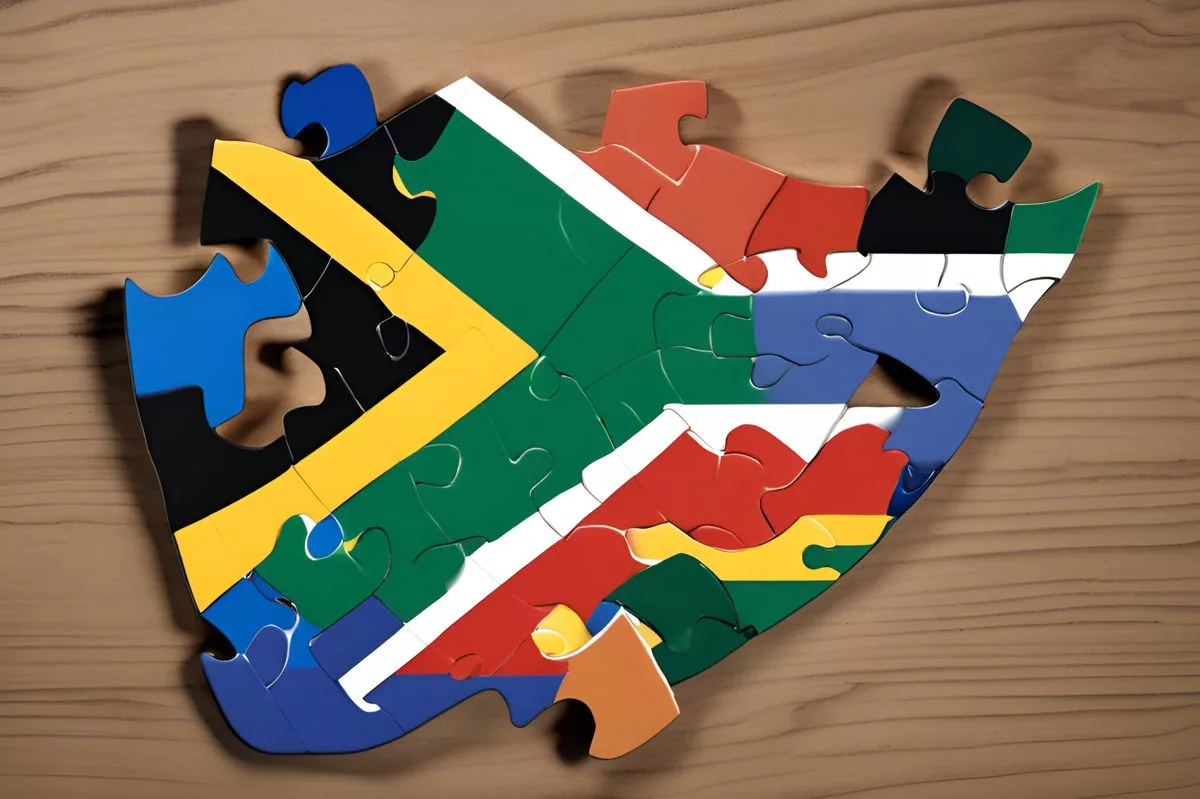The event emphasized the importance of the NPC’s role in guiding the country towards effective solutions and propelling the country’s developmental agenda.
What is the National Planning Commission of South Africa and what is their role?
The National Planning Commission (NPC) of South Africa is tasked with providing fact-based guidance on visionary national planning and foresight scenario planning for the implementation of the plan up to 2030. They also need to initiate dialogues among key stakeholders to forge effective social compacts on the country’s primary issues. The NPC’s role is essential in propelling South Africa’s developmental agenda and guiding the country towards effective solutions.
South Africa’s National Planning Commission’s Strategic Lekgotla
On March 1-2, 2024, the National Planning Commission (NPC) of South Africa embarked on a Strategic Lekgotla. The conference bore the emblem of a theme filled with potential and resolve: ‘Advancing the NDP’. Located at the vibrant nexus of the Holiday Inn at OR Tambo International Airport, the gathering embodied the depth of South Africa’s political landscape. This environment was characterized by the impending closure of the 6th administration and the anticipation of the 7th National and Provincial elections.
NPC’s crucial function in this politically dynamic situation was articulately voiced by its chairperson, Ms. Maropene Ramokgopa. She emphasized the importance of this crossroad, painted with 30 years of celebration of freedom and democracy and the midpoint of the NPC’s term since its inauguration in 2021.
Reflection on Democracy and Development in South Africa
The year 2024 is a milestone in South Africa’s chronicles, prompting contemplation on 30 years of democratic rule. Such reflection demands a comprehensive study of the mechanisms that the government and society have employed to address the developmental needs of our populace. The narrative of building our democracy is marked by significant development strategies and programs. These include the Freedom Charter of 1955, the Reconstruction and Development Programme (RDP) of 1994, the Constitution of the Republic of South Africa of 1996, and the National Development Plan (NDP) of 2012, among others.
The modern South Africa stands as evidence of the transformative power of these plans, a stark contrast to the nation inherited in 1994. The road to democracy was marked by struggle, opposition, resilience, unity, and an unwavering quest for freedom. The fruits of our democracy must be safeguarded and promoted, not undermined, as we grapple with the challenges of the present and the future. This sentiment resonated in the briefing on the progress made through South Africa’s Thirty-Year Review of Democracy, conducted by the DPME.
The review prompted several critical questions: What is the strategy to strengthen the improvements made in people’s living conditions? How can we fortify the establishments and systems developed to manage socio-economic, political, and geographical upheavals? How can South Africa optimize its growing international influence to prioritize domestic needs? What essential reforms are imperative for transformative, equitable economic growth? And how can we re-engineer our planning systems to better serve our nation?
NPC’s Role in Addressing Challenges
These thought-provoking questions compel a rejuvenation of the NPC’s transformational role in propelling the country’s developmental agenda. The NPC must pioneer innovative solutions to modern challenges such as economic growth, corruption, energy and water security, infrastructure enhancement, and the reforming of SOEs to promote a developmental agenda. Additionally, the NPC needs to evaluate the socioeconomic health of the pre-Tintswalo population cohort, who should have been the beneficiaries of the government’s youth-centric development initiatives.
The Strategic Lekgotla served as a forum to discuss the issues tied to the transition from the 6th administration to the 7th, including the effect of budget reductions on government priorities. If improperly managed, South Africa’s politically charged environment could undermine democratic advancements. As such, the NPC must also assess the effect of coalition governments on the delivery and availability of basic services, public infrastructure development, and the execution of key legislations and policies.
Ms. Ramokgopa implored the NPC to address the disconnect between local and national government and its impact on the citizenry, especially the impoverished and the labor class. She asserted that the commission’s collective power could guide the Executive and the President towards effective solutions.
Looking Ahead: NPC’s Future Role
The Lekgotla offered an opportunity for introspection on the NPC’s operations, especially the effect of budget cuts on its mandate. The NPC is tasked with providing fact-based guidance on visionary national planning and foresight scenario planning for the implementation of the plan up to 2030. Moreover, it needs to initiate dialogues among key stakeholders to forge effective social compacts on the country’s primary issues, working within budgetary constraints and utilizing its convening ability to secure stakeholder support.
Ms. Ramokgopa concluded her address with a plea for the NPC to employ ingenious and strategic methods to ensure the remainder of its term is impactful and geared towards advancing the key developmental goals enlisted in the NDP. As the NDP nears its chronological conclusion by 2030, the NPC must guide South Africa in deciding the path forward.
Through this complex mosaic of reflections, challenges, and calls to action, the Strategic Lekgotla of the NPC painted a vibrant, optimistic portrait of South Africa’s future. The event emphasized the central role the NPC holds in steering the nation’s development agenda, reminding us of the collective strength, resilience, and unity that has carried us to this point and will drive us further.
What is the National Planning Commission of South Africa and what is their role?
The National Planning Commission (NPC) of South Africa is tasked with providing fact-based guidance on visionary national planning and foresight scenario planning for the implementation of the plan up to 2030. They also need to initiate dialogues among key stakeholders to forge effective social compacts on the country’s primary issues. The NPC’s role is essential in propelling South Africa’s developmental agenda and guiding the country towards effective solutions.
What was the purpose of the Strategic Lekgotla held by the National Planning Commission of South Africa in March 2024?
The purpose of the Strategic Lekgotla held by the National Planning Commission of South Africa in March 2024 was to reflect on 30 years of democratic rule and the mechanisms that the government and society have employed to address the developmental needs of the populace. It also served as a forum to discuss the issues tied to the transition from the 6th administration to the 7th, including the effect of budget reductions on government priorities.
What were the critical questions raised during the Thirty-Year Review of Democracy conducted by the DPME?
The critical questions raised during the Thirty-Year Review of Democracy conducted by the DPME were: What is the strategy to strengthen the improvements made in people’s living conditions? How can South Africa optimize its growing international influence to prioritize domestic needs? What essential reforms are imperative for transformative, equitable economic growth? And how can we re-engineer our planning systems to better serve our nation?
What are the challenges that the National Planning Commission of South Africa needs to address?
The National Planning Commission of South Africa needs to address challenges such as economic growth, corruption, energy and water security, infrastructure enhancement, and the reforming of SOEs to promote a developmental agenda. Additionally, the NPC needs to evaluate the socioeconomic health of the pre-Tintswalo population cohort, who should have been the beneficiaries of the government’s youth-centric development initiatives.
What was the plea made by Ms. Ramokgopa during the Strategic Lekgotla?
Ms. Ramokgopa implored the NPC to address the disconnect between local and national government and its impact on the citizenry, especially the impoverished and the labor class. She asserted that the commission’s collective power could guide the Executive and the President towards effective solutions.
What is the future role of the National Planning Commission of South Africa?
The future role of the National Planning Commission of South Africa is to guide South Africa in deciding the path forward as the NDP nears its chronological conclusion by 2030. The NPC must employ ingenious and strategic methods to ensure the remainder of its term is impactful and geared towards advancing the key developmental goals enlisted in the NDP. The NPC must work within budgetary constraints and utilize its convening ability to secure stakeholder support.












